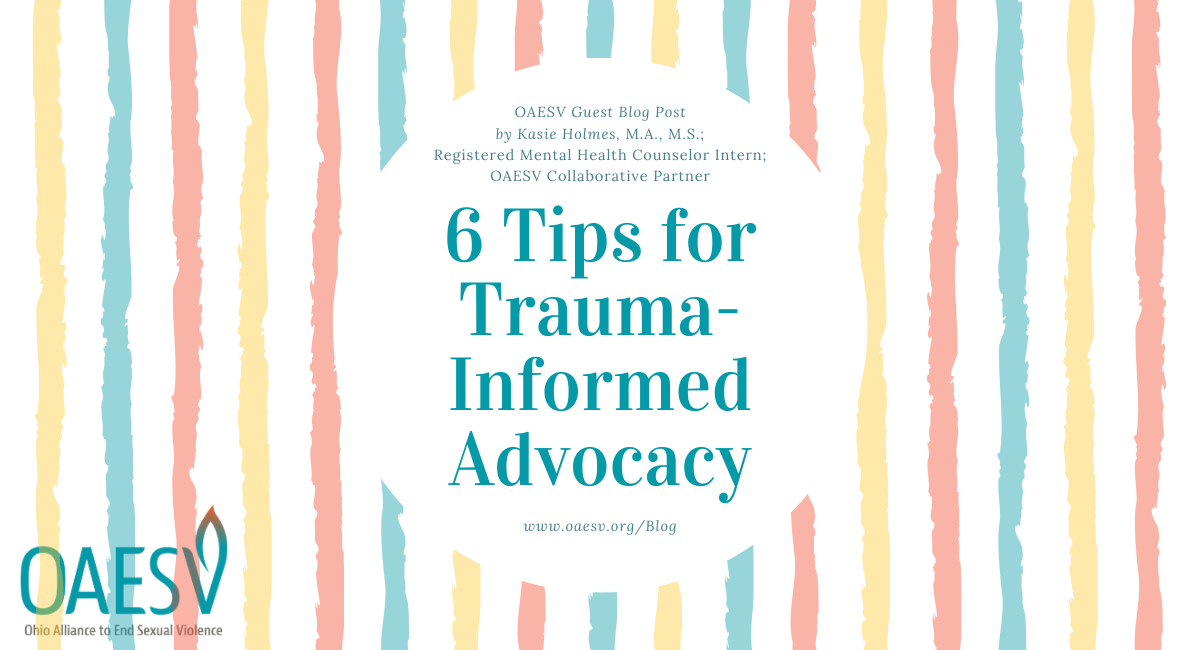6 Tips for Trauma-Informed Advocacy

When defining trauma, we often limit the definition to a catastrophic and explicitly physical, violent event. Through this definition, we inadvertently remove ourselves from the notion that we, too, may have experiences with trauma and that trauma is normalized in today’s society. Simply put, trauma is an emotional response to physical, verbal, psychological, sexual, financial, spiritual and/or emotional disturbances. Considering this definition, trauma-informed approaches are foundational to providing care and a critical approach to healing a scope of people. Having said that, below are some tips on how we all can become trauma-informed to encourage an environment that is based on healing, safety, and empowerment.
Tip #1: Educate yourself on marginalized identities and forms of oppression.
- Cultural humility is key to recognizing the ways people from marginalized communities experience different forms of trauma.
Tip #2: Build rapport to promote a trusting and safe relationship.
- Depending on the context, building rapport may look different in different situations. We may only have a short amount of time to “build rapport” before the conversation ends. For example, an advocate may only talk on the phone with the caller for a few minutes. Still, there are ways to connect with the caller. This can be achieved through active listening, reflection, paraphrasing, validation, and open-ended questions.
Tip #3: Transparency.
- If you have to ask specific questions in your assessment that have the potential to make the person uncomfortable or could be triggering, preface the question with an explanation. When working with victims and survivors, it is imperative that we do not come off as abrupt, harsh, shocked, or judgmental, which can be avoided by being transparent about the process.
Tip #4: Center the survivor.
- Be sure to not indirectly or directly center you, the abuser, or anyone else. The survivor is the client. This also provides the environment for the survivor to feel empowered, which is important in the healing process.
Tip #5: Practice empathy and be mindful of your tone.
- Survivors may not remember the specific things you say, but they will remember how you made them feel. Be sensitive, show warmth, validate their concern, ask questions, and “help carry the load.”
Tip #6: Self-care.
- It is an ethical responsibility to take care of oneself when engaging in this type of work. It is okay to not be okay– just know when you need to debrief, decompress, unplug, or take a break. Otherwise, we are doing a disservice to the clients.
While there are plenty of other tips that could be included on this list, the above-mentioned tips are fundamental to building a trauma-informed culture. Sometimes, no amount of experience or knowledge can prepare us for the tragedies we will hear throughout the day as an advocate. By implementing these above tips, I can assure you that you are enough for that person in that moment.
